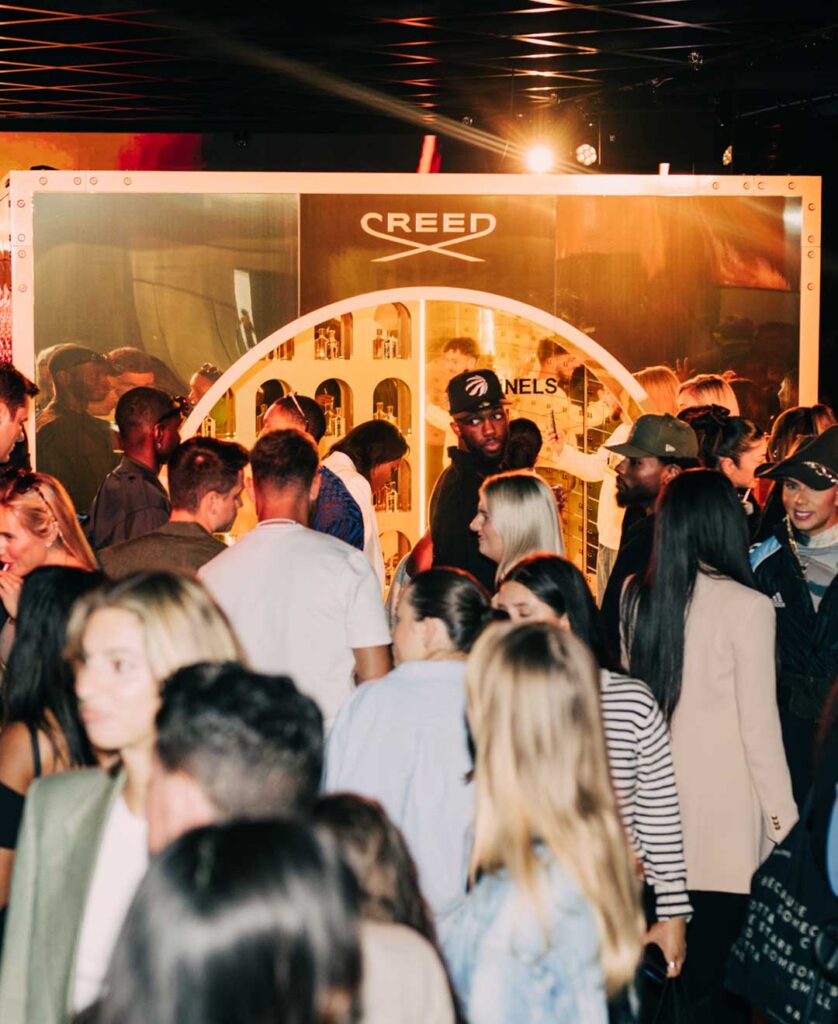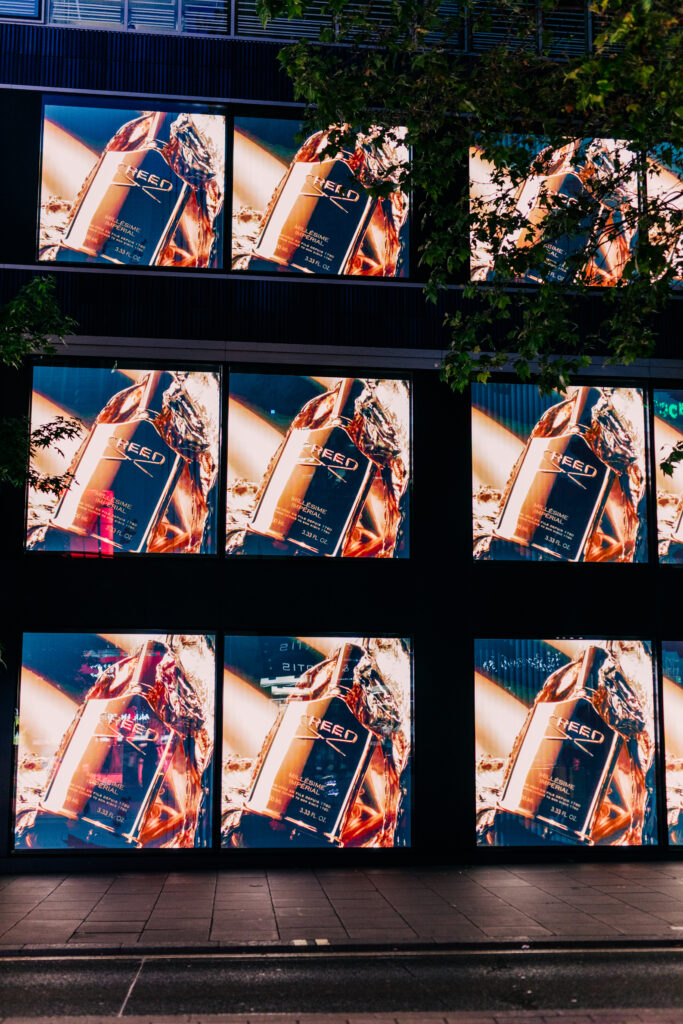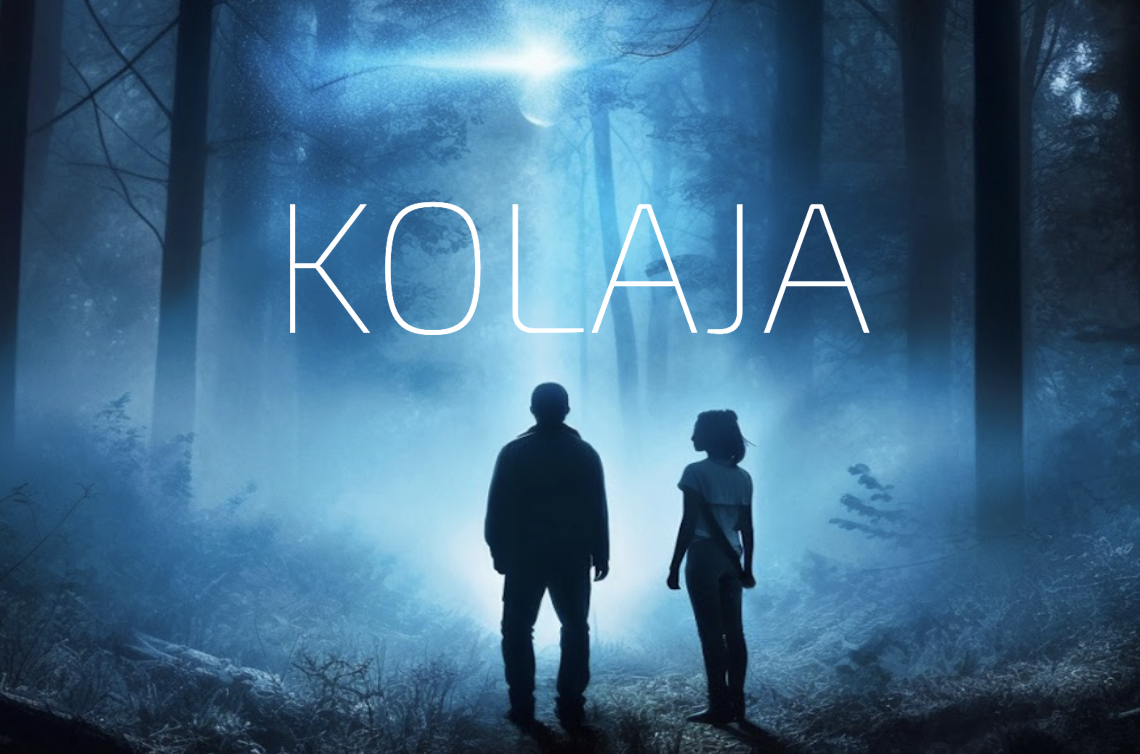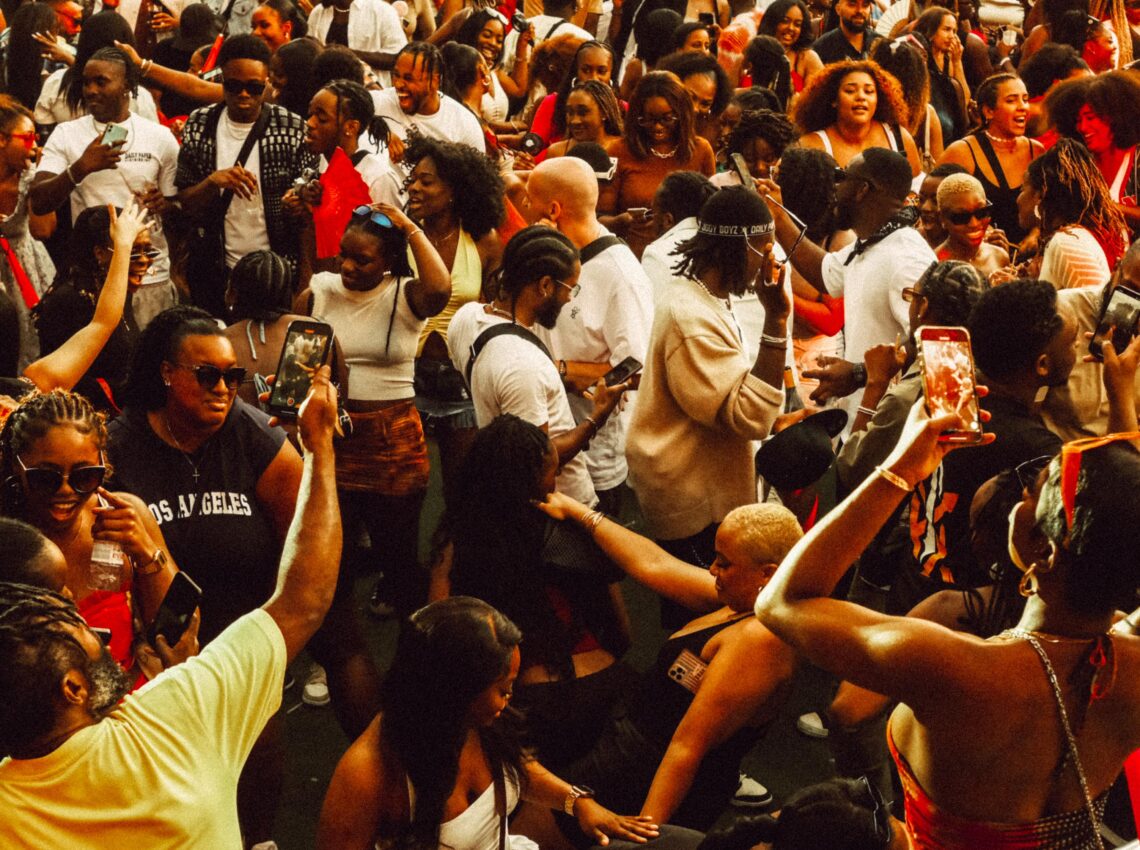FLANNELS X CREED: CKTRL’S SONIC VOYAGE INTO FRAGRANCE ARTISTRY [@CKTRL]
![FLANNELS X CREED: CKTRL’S SONIC VOYAGE INTO FRAGRANCE ARTISTRY [@CKTRL]](https://guap.co/wp-content/uploads/2023/08/C640B769-A6BB-4641-8B5B-3EA9A9AD69A2-e1692016520115-1140x850.jpeg)
Delving into the mesmerising soundscapes of CKTRL…
One of the most beautiful things about sound is the deeply visceral emotions it evokes when done just right. Few people are as well-versed in this concept as London’s own CKTRL. CKTRL’s music is a reflection of the Black music that shaped his upbringing. With a background in classical training, he has reinvented the genre, infusing it with baroque-inspired jazz and grime elements.
CKTRL’s recent projects explore a meditative and reflective state, where vulnerability coexists with a sense of safety. Most recently, he curated a soundscape for an immersive pop-up experience, collaborating with Flannels X and Creed to shine a light on the art of Creed’s Millesime Imperial fragrance. Centering his composition around the rise and fall of the sun and the exploration of light, his honeyed jazz instrumentals were set against a visual installation on the Flannels screens created in partnership with Europe’s largest art platform, W1 Curates. At the centre sat a gold vault, signalling the precious nature of the fragrance.
GUAP sat down with CKTRL to understand how he created a sonic journey that mirrored the experience of reflection and self-discovery…

Naima: I would love to hear about the origins behind your love of music. Was there someone or something that sparked that flame for you?
Cktrl: My mom’s from Montserrat, so she would always play soca on weekends. My dad’s from Jamaica, so reggae and ragga were always playing. They were always playing loads of different music in the house. My sister had loads of CDs when I was growing up as well, so there was 90s R&B and everything happening there, I guess. Dad also had loads of soul records, funk, and rare groove. There was just a lot of different music in the house all the time. So yeah, the origins of my love for music are just from the Black music that I grew up with in my house. I feel like that’s what music is for us—it’s communities.
Naima: Could you share the story of how you became involved in the Flannels and Creed project? What aspects of these organisations resonate with you?
Cktrl: I’ve done some things with Flannels before, and the team is always super nice. I love the space; with me, everything is just vibes. The energy of being approached to be a part of the project was really pure. When it came to bringing it to life, originally, I did a playlist with loads of other artists that resonated with the brief. Actually, it wasn’t really a brief; it was more like a story of how they wanted the space to feel. When I did that, they were like, “Oh no, no, no, we just want your music.” So I was like, “Ahhh madting!” I wasn’t expecting that either, so it was really special to put my music together in a way that I felt reflected what they wanted to feel from space. Collaboration in that way is kind of the best for me because it leaves it open for creativity.
Naima: What inspired you to centre your composition around the rise and fall of the sun and the exploration of light? Were there any particular experiences or ideas that influenced this choice?
Cktrl: With the music that I’ve been putting out as of late, it’s very much like a reflection. Everything is played in a guided meditation or meditative kind of state, but it’s also very reflective. And obviously, light is always reflecting us. That’s how we see. With that in mind, I thought about how I could put a sonic journey together that reflects that sense. The music, in that sense, is allowing vulnerability but also safety.

Naima: Your Caribbean heritage is an important part of your identity. How does it manifest in your music, and is there a distinctive element in your sound and curation that you feel reflects your background?
Cktrl: It’s original, and that’s very Jamaican. You know, we don’t follow anyone. But it’s like that with anything. If you like a John Holt song and take out the bass and drums, and mute the vocals, then you’d have a similar rotation. Those are the elements, and syncopation is a thing. Also, just the way things are mixed. What makes Caribbean music so distinctive is how it’s mixed. There are common or obvious Caribbean sounds, but those obvious and common Caribbean sounds are also at a particular frequency. So, if you’re playing instruments at a similar frequency but it’s not the common sound, it still has the same feeling.
Naima: I know moving through classical music scenes can be quite challenging for a Black artist, especially coming from Lewisham. What do you think could be done to make these spaces more accessible & fruitful?
Cktrl: I think my outlook has changed a little bit. Most things just stemmed from education. I think if people are able to obtain the skills and understanding of youth culture and the industry they want to get into, it’s important. Knowing where youth culture sits within that industry is important because then you can kind of carve out your own thing. The things that we focus on as young, non-white people should be about how we express ourselves within these industries. But looking at it from a youth culture lens enables you to create your own space within it. If someone doesn’t book me, that’s perfect. It means they had a whole opposite direction for what they were trying to do. I can’t be replaced. But you have to create your own spaces to thrive. Then come to institutions later once you’ve created your own space first, not the other way around. Because that won’t do any good for you.
Naima: What did you feel the most essential thing was for you to create that space for yourself?
Cktrl: It took time because I wasn’t even aware of the space I was creating with what I was doing. It was just out of a necessity to do things because opportunities were happening elsewhere. Going through that as a journey, you start to kind of self-actualize. Success for me was knowing myself, whether that be through therapy or reading. If you’re not good, then you can’t do good. Once I knew what I wanted to say, what I’m about, and what resonates with me, I became more aware of the spaces I’ve created. It’s about finding your tribe; a lot of people try to find peers in what they’re doing as well. In London, that’s not necessarily the best approach because there’s always that kind of crabs-in-the-barrel mentality. For me, it wasn’t necessarily other musicians that I had a kinship with that helped push me forward. It was friends in art, fashion, and design that helped me galvanise what I was trying to do. A lot of times, people try to make friends within a scene, and sometimes that can work for you, but it can also pigeonhole you later.
What can we expect from you in the future, are there any upcoming projects or collaborations to look forward to?
I’ve got my next headline show in November, and the tickets have gone out for that one. It’s going to be at Bush Hall in Shepherd’s Bush. My agents wanted me to go big, telling me to pick a venue for that, but I was like, “Nah, we’re gonna do a small, intimate one.” Because I haven’t done anything like that since my very first headline show. So it’s definitely going to be a more immersive kind of show because I get to do that show when I tour in Europe and stuff. There should be some new music before then. I’m in the middle of trying to get a new management situation going on. So once I have a team in place, then I’ll know what music is coming up, but there is a lot of music.




![ZINO VINCI’S ‘FILTHY & DISGUSTING’EP BRINGS YOU TO THE CORE OF THE ARTIST [@ZinoVinci]](https://guap.co/wp-content/uploads/2023/10/Zino-4.jpg)




